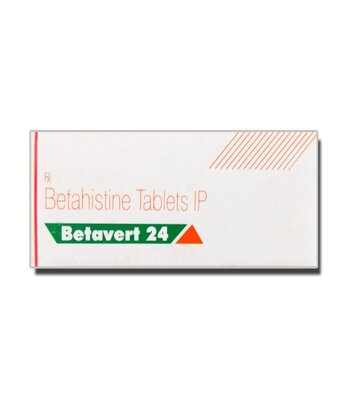Ezuric 25mg Tablet 10'S
INR 205INR 205
Category :
Sub Category :
Mfr by:
Country of Origin:
NA
What is EZURIC 25MG?
EZURIC 25MG contains Eplerenone which belongs to a group of medicines known as selective aldosterone blocking agents
What EZURIC 25MG is used for?
It is used to,
treat heart failure in patients who had a recent heart attack in combination with other medicines
Talk to Doctor
Talk to your doctor before taking this medicine, if you:
are allergic to eplerenone or any of the other ingredients of this medicine
have high levels of potassium in your blood (hyperkalaemia)
have severe kidney liver disease
Pregnancy & Breast Feeding
If you are pregnant or breast-feeding, think you may be pregnant or are planning to have a baby, ask your doctor for advice before taking this medicine
Children & Adolescents
The safety and efficacy of this medicine in children and adolescents have not been established
Driving & Using Machines
You may feel dizzy after taking this medicine. If this should happen, do not drive or operate machinery
Always take this medicine exactly as your doctor has told you
It may be taken together with food or on an empty stomach
Swallow the tablet whole with plenty of water
If you take more EZURIC 25MG
Contact your doctor immediately or go to nearest hospital
If you forget to take EZURIC 25MG
If you forget to take EZURIC 25MG, take it as soon as you remember
If it is almost time for your next dose, skip the missed dose
Do not take two doses at the same time
If you stop taking EZURIC 25MG
It is important to keep taking this medicine as prescribed unless your doctor tells you to stop your treatment
Serious
Like all medicines, this medicine can cause side effects, although not everybody gets them.
swollen face, tongue or throat
difficulty swallowing
hives and difficulties breathing
Common
Like all medicines, this medicine can cause side effects, although not everybody gets them.
elevated potassium level in your blood (symptoms include muscle cramps, diarrhoea, nausea, dizziness or headache)
dizziness
fainting
elevated quantity of cholesterol in your blood
difficulty sleeping (insomnia)
headache heart complaints e.g. irregular heartbeat and heart failure
cough
constipation
low blood pressure
vomiting
abnormal functioning of your kidney
rash, itching
back pain
feeling weak
muscle spasm
increased urea level in the blood
increased creatinine blood levels which may indicate kidney problems
Uncommon
Like all medicines, this medicine can cause side effects, although not everybody gets them.
increase in certain white blood cells (eosinophilia)
dehydration
elevated quantity of triglycerides (fats) in your blood
low sodium blood levels
fast heart beat
inflammation of the gall bladder
decreased blood pressure that can cause dizziness upon standing
thrombosis (blood clot) in a limb
sore throat
flatulence
underactive thyroid
increase in blood glucose
reduced sense of touch
increased sweating
feeling generally unwell
musculoskeletal pain
kidney inflammation
enlargement of breasts in men
changes in some blood test results
Tell your doctor if you are taking, have recently taken any other medicines such as:
itraconazole or ketoconazole, fluconazole used to treat fungal infections
ritonavir, nelfinavir, saquinavir, antiviral medication for treating HIV
clarithromycin, telithromycin, erythromycin, rifampicin, used to treat bacterial infections
nefazodone, used to treat depression
drugs which help you to excrete excess body fluid, such as spironolactone, amiloride and triamterene
angiotensin converting enzyme inhibitors and angiotensin receptor blockers together which are used to treat high blood pressure, heart disease or kidney conditions
lithium, usually given for manic depressive disorder, also called bipolar disorder
ciclosporin or tacrolimus, used to treat skin conditions such as psoriasis or eczema and to prevent rejection after organ transplantation
certain pain killers such as ibuprofen, used to relieve pain, stiffness and inflammation
trimethoprim, used to treat bacterial infections
prazosin or alfuzosin, used to treat high blood pressure and particular prostate conditions
amitriptyline or amoxapine, for treatment of depressions
chlorpromazine or haloperidol, for the treatment of psychiatric disorders
amifostine, used during cancer chemotherapy
baclofen, used to treat muscle spasm
glucocorticoids, used to treat inflammation and certain skin condition
digoxin, amiodarone, diltiazem and verapamil used in the treatment of heart conditions
warfarin an anti-clotting drug
carbamazepine, phenytoin and phenobarbital, used among others, to treat epilepsy
Storage
Keep this medicine out of reach of children
Store at room temperature (15-25ºC)
Do not use this medicine after the expiry date
Disclaimer:
The contents of this website are for informational purposes only and not intended to be a substitute for professional medical advice, diagnosis, or treatment. Please seek the advice of a physician or other qualified health provider with any questions you may have regarding a medical condition. Do not disregard professional medical advice or delay in seeking it because of something you have read on this website.




~4.jpg)







